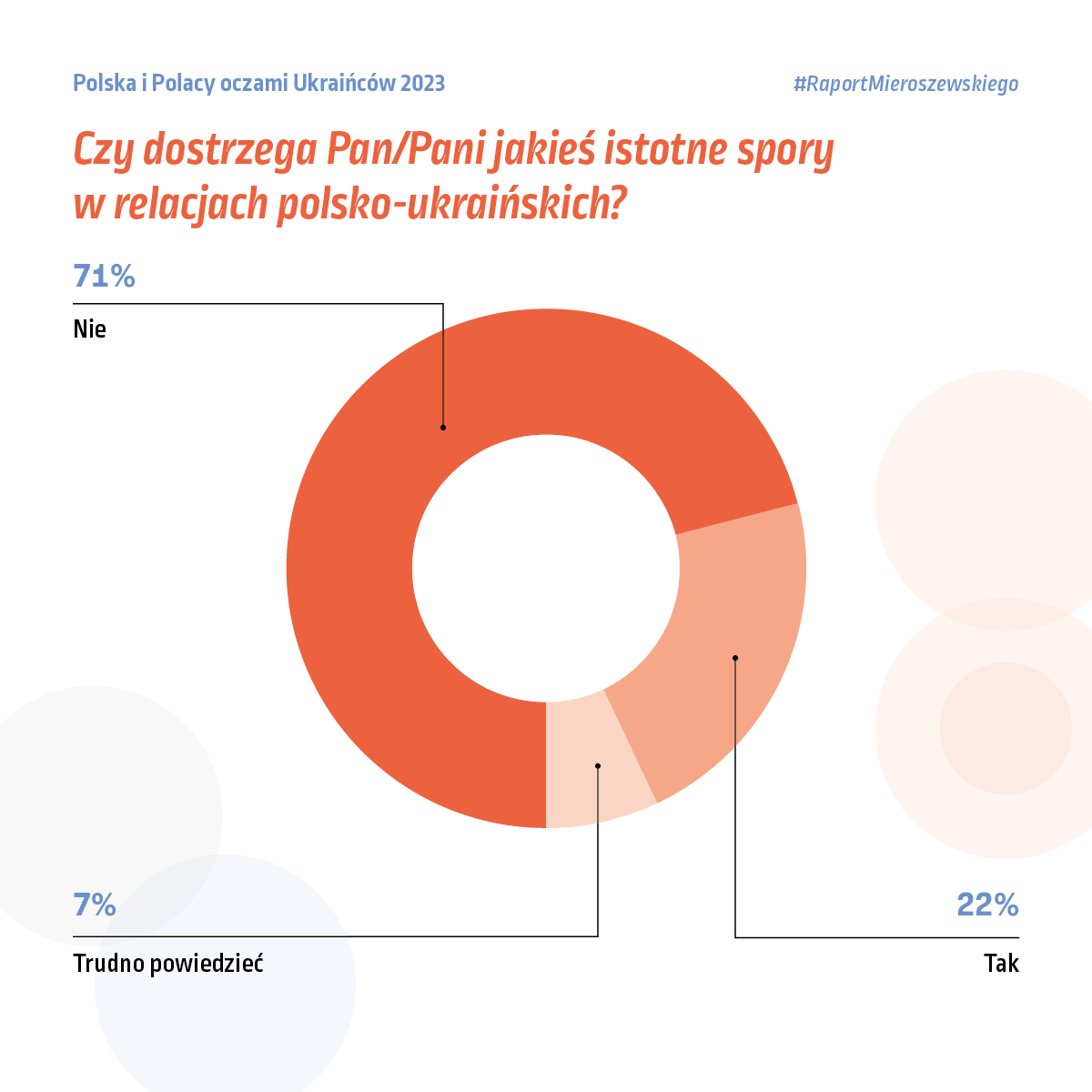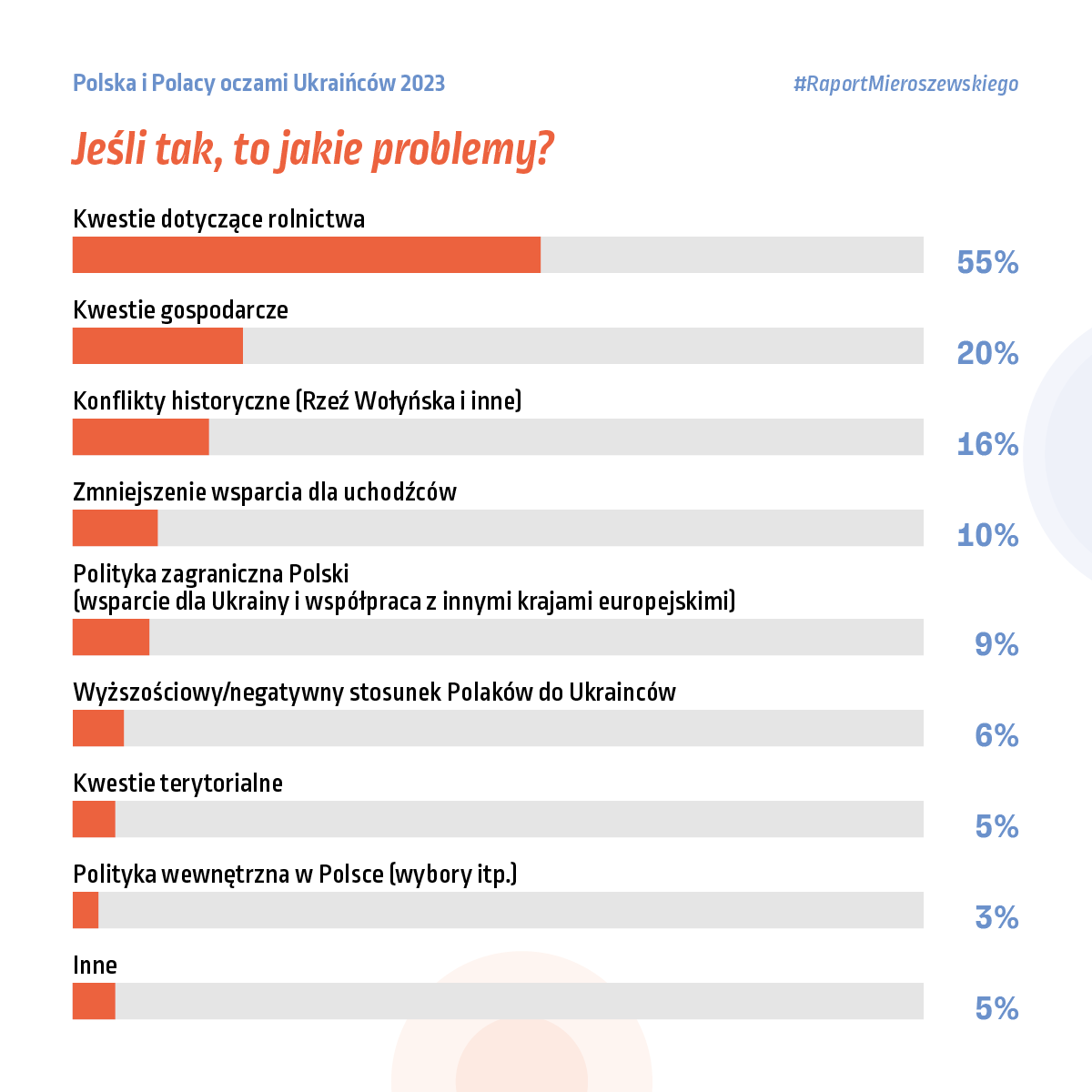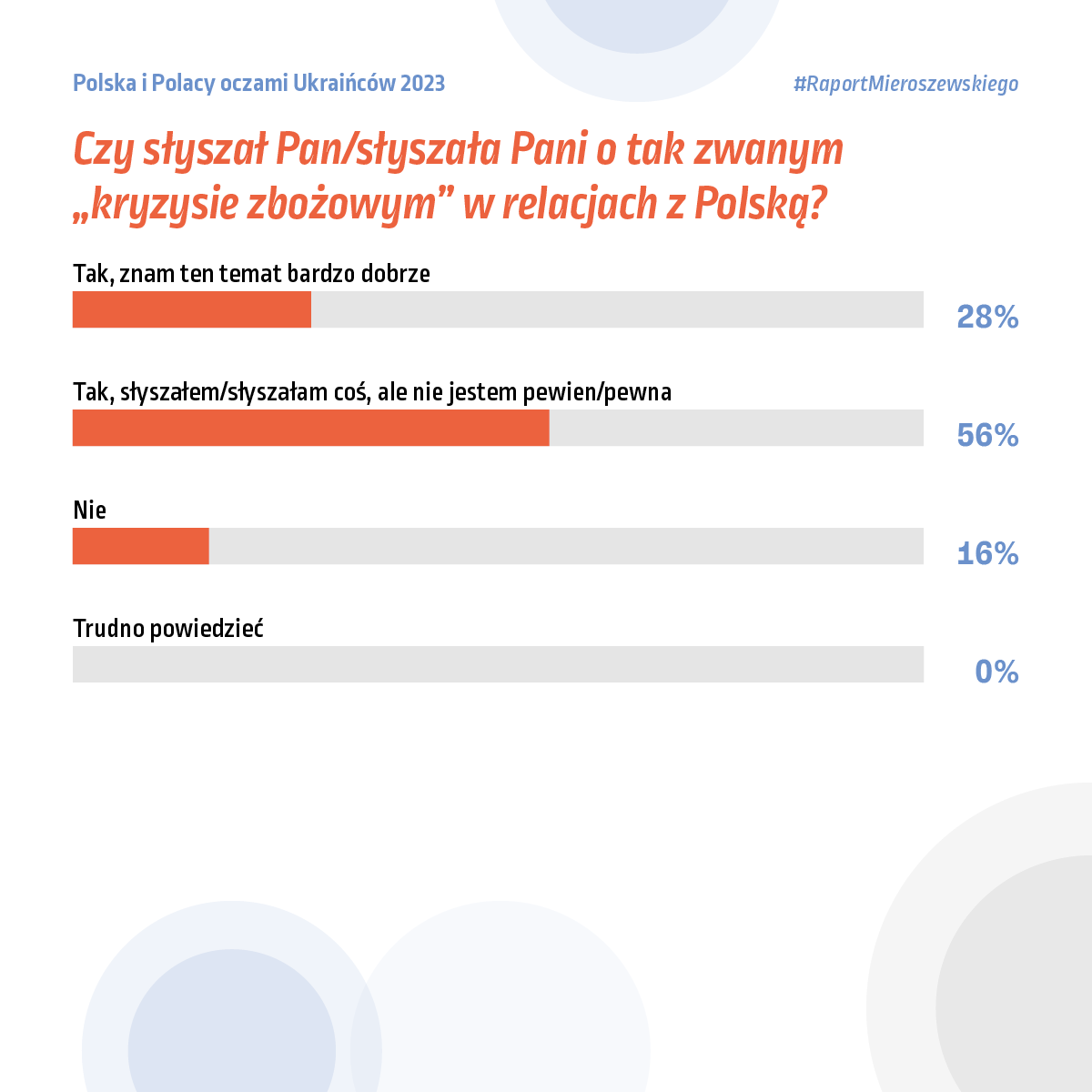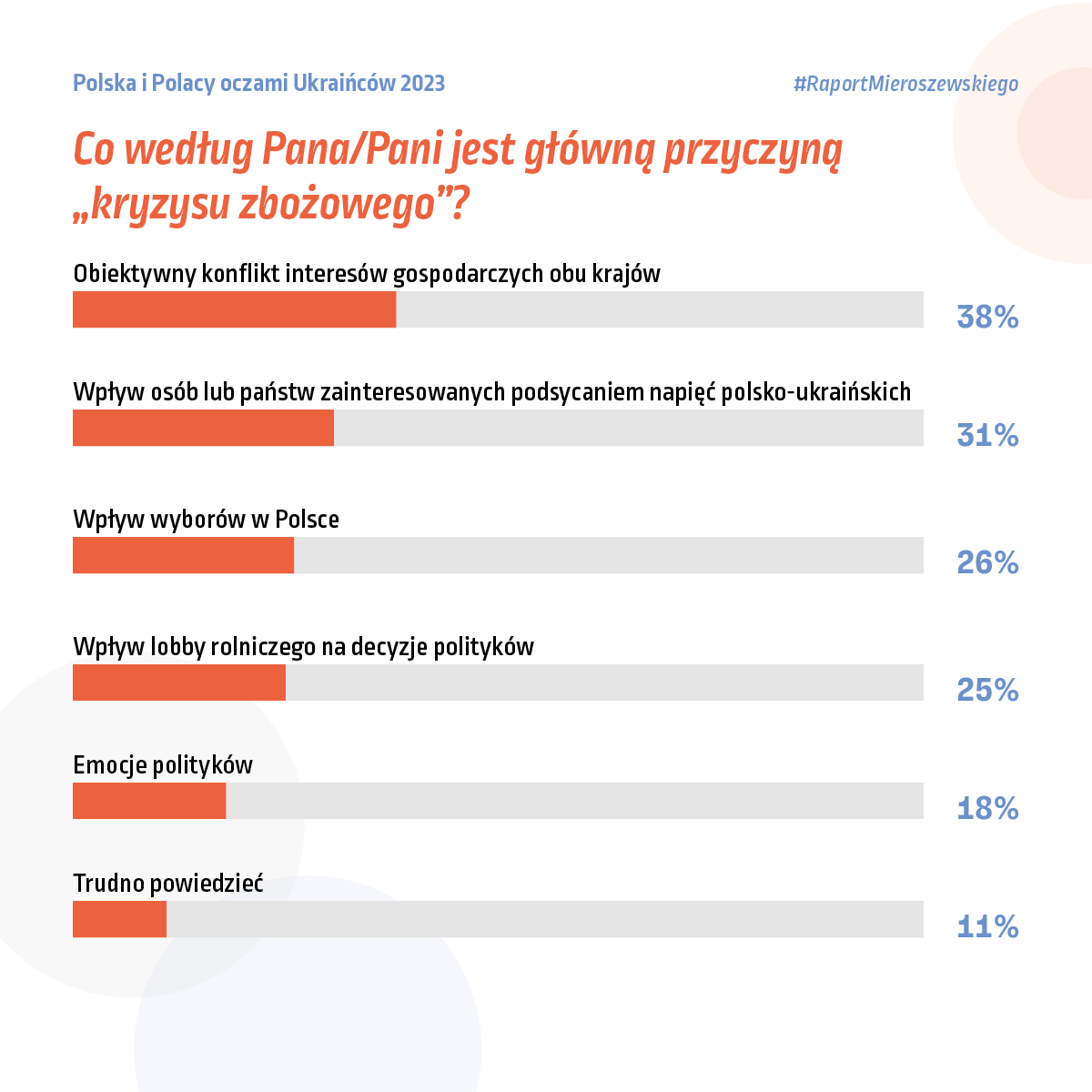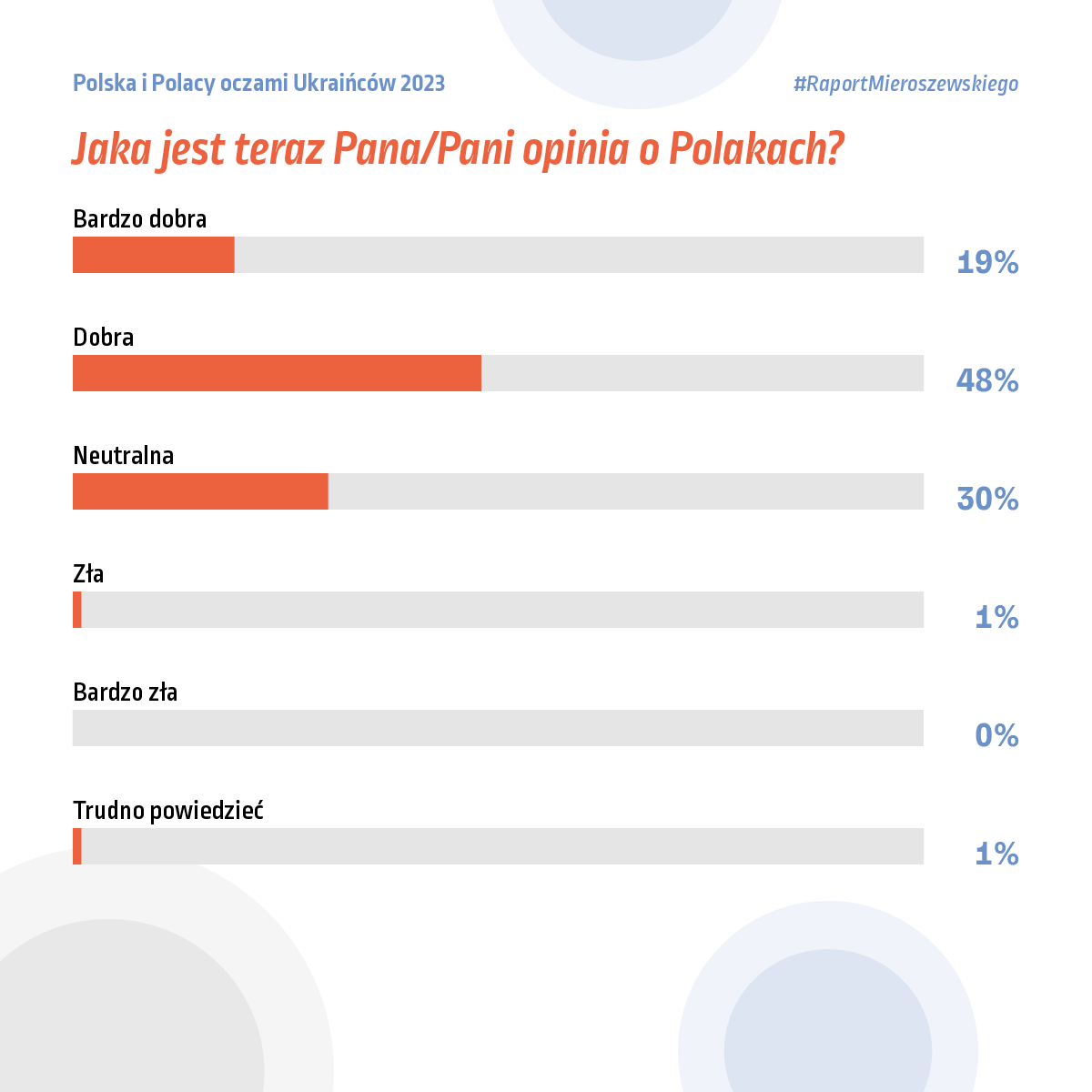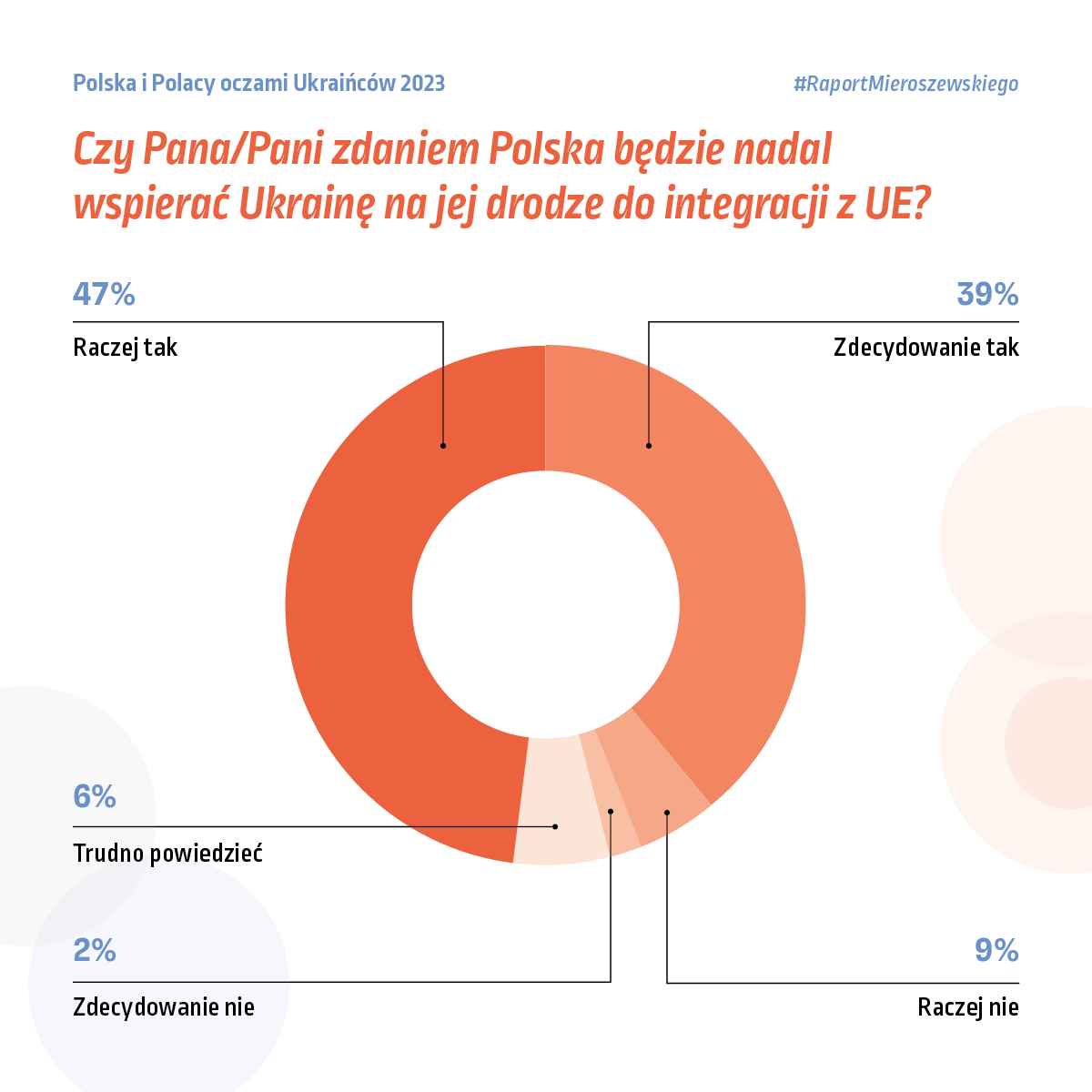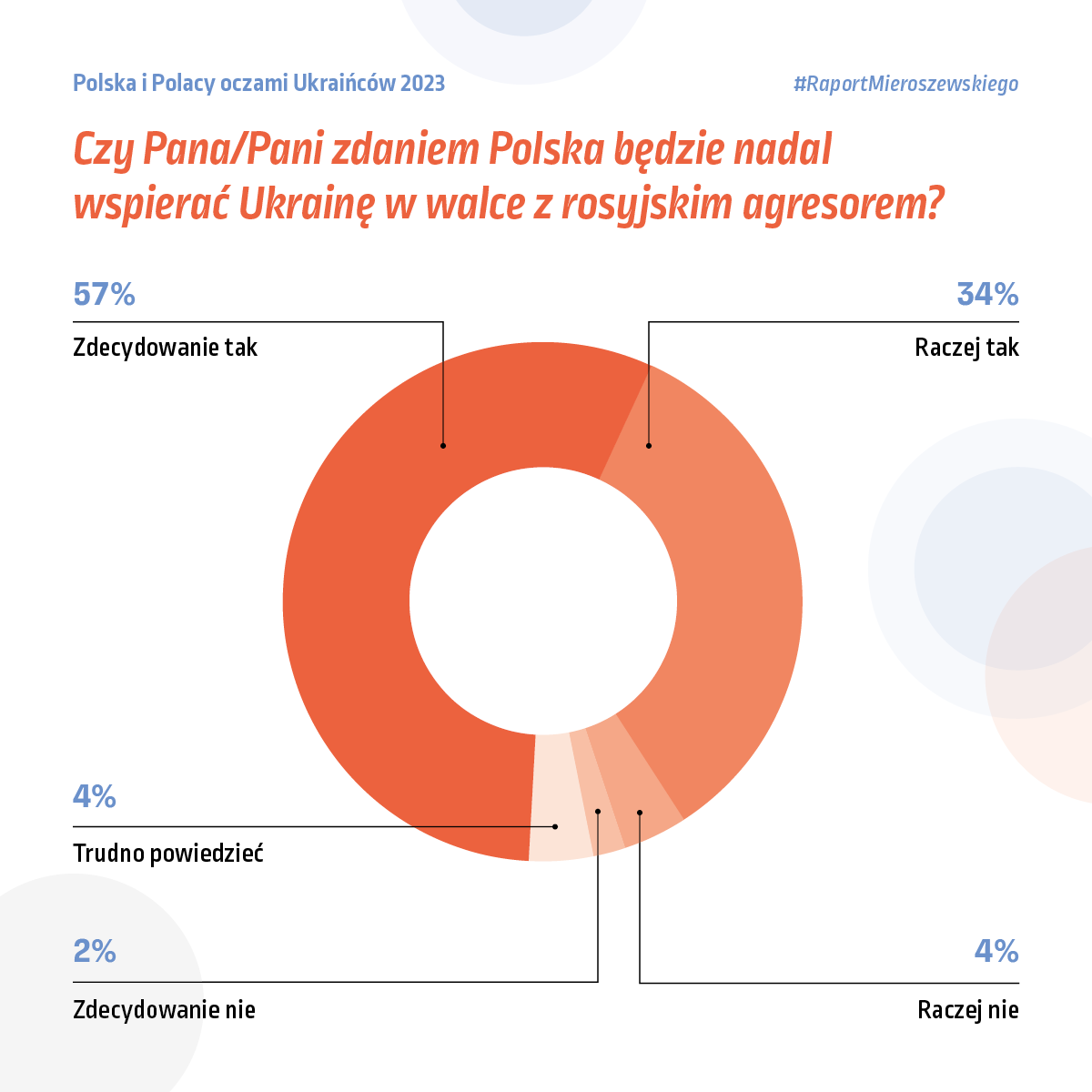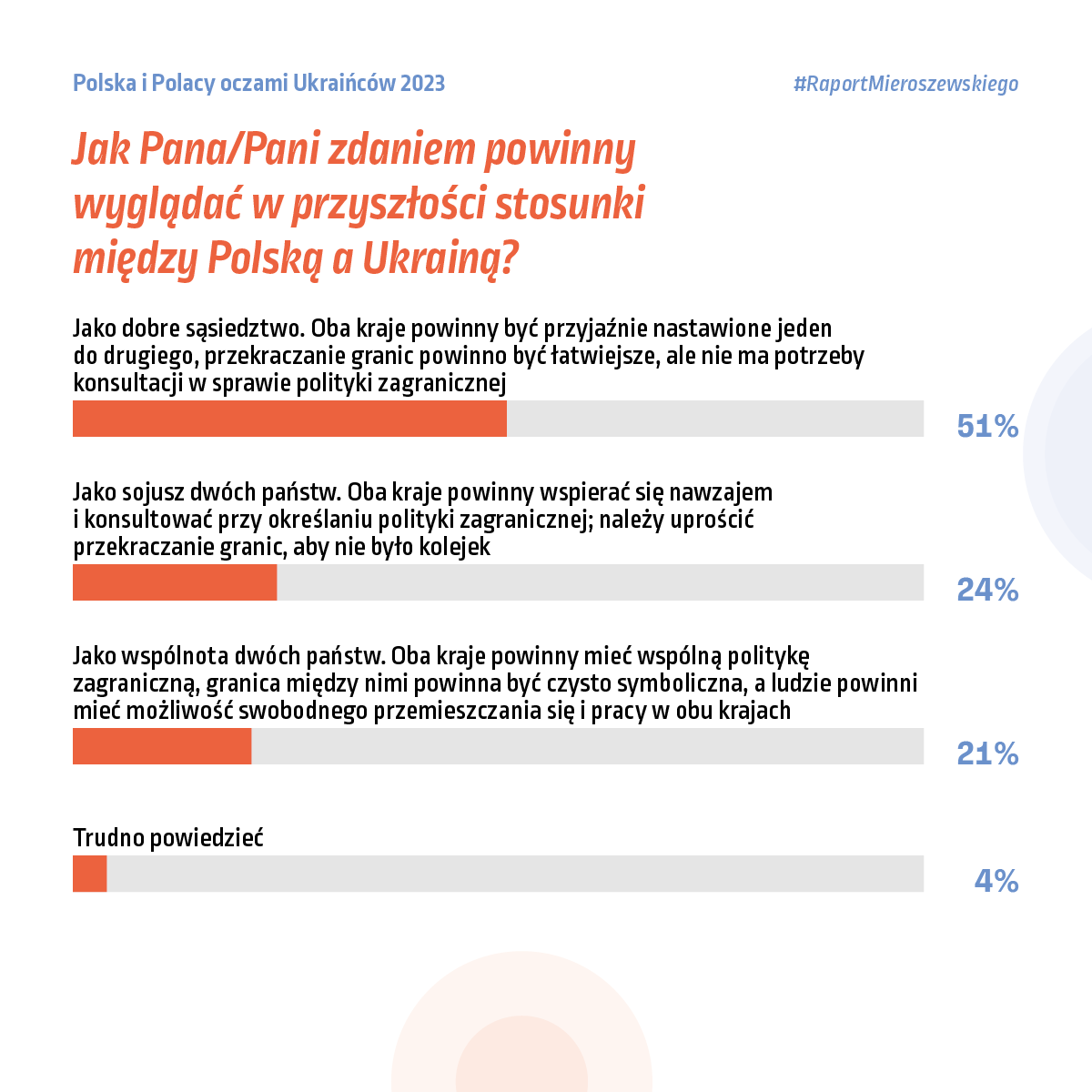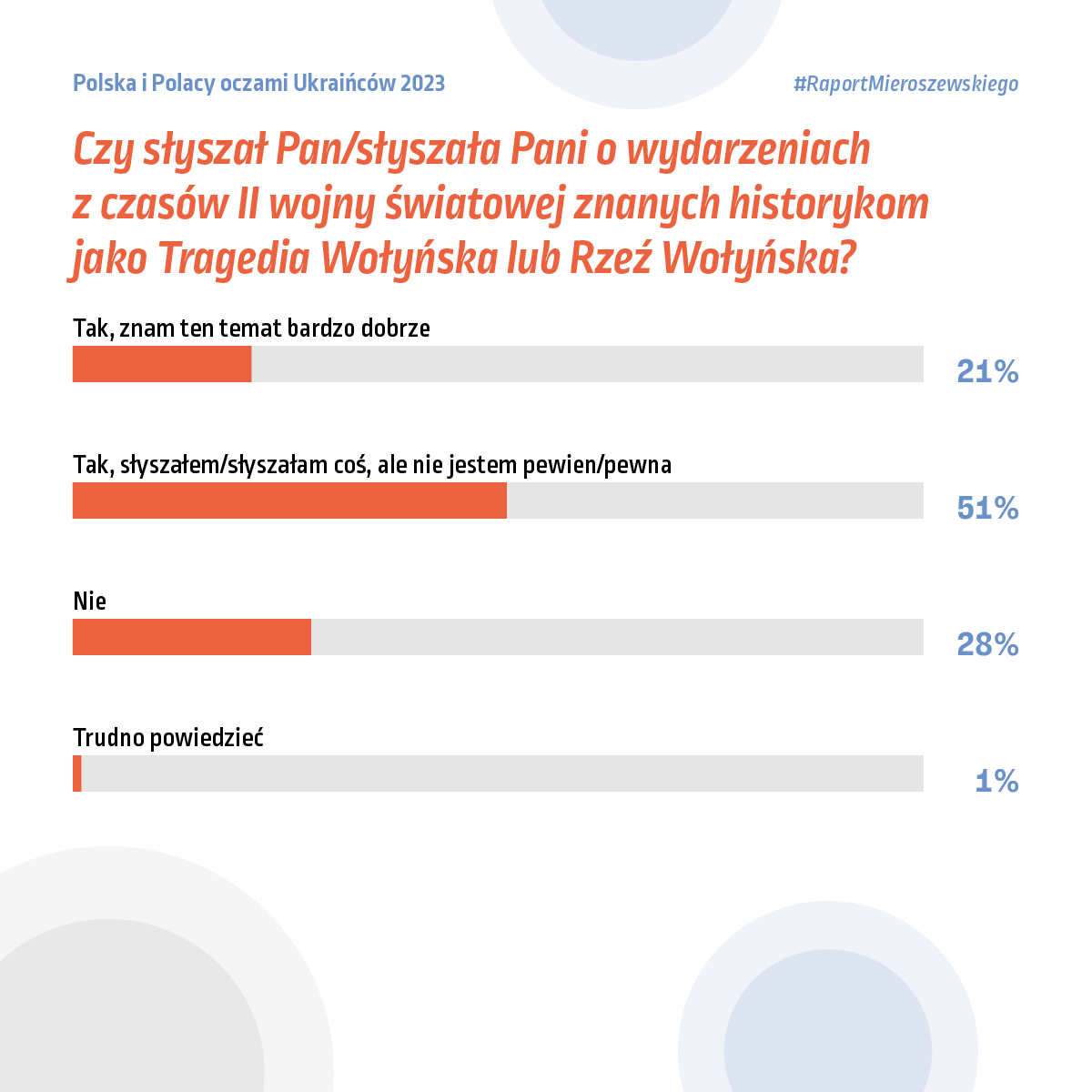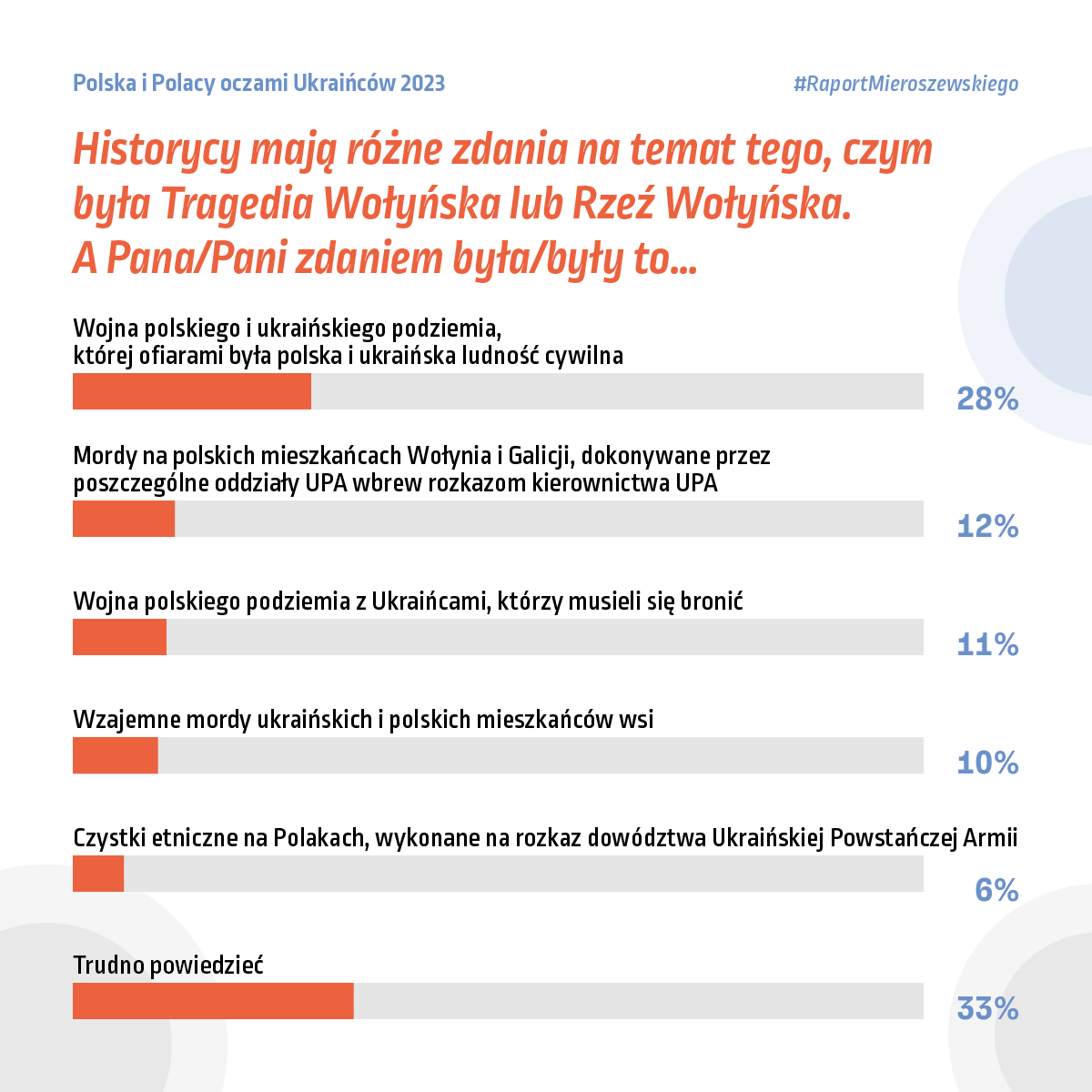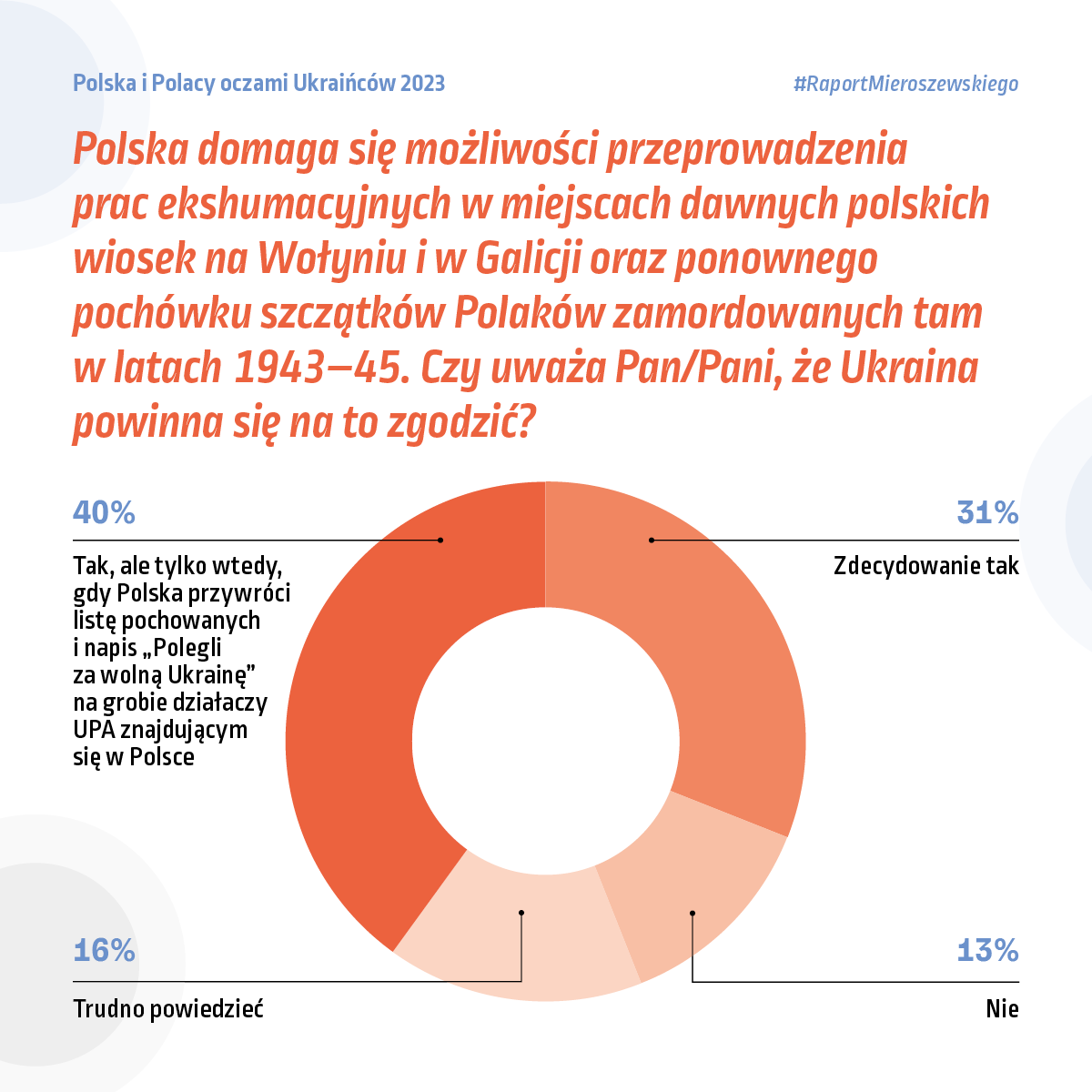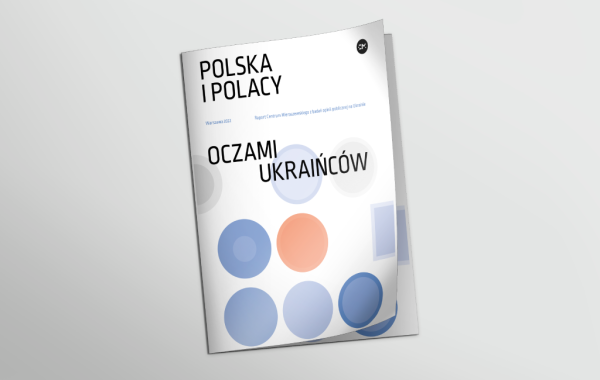Poland and Poles as seen by Ukrainians 2023
The Mieroszewski Centre commissioned the Ukrainian sociological laboratory Info Sapiens to conduct a survey of Ukrainian public opinion on attitudes towards Poland and Poles. The survey was conducted between 9 and 15 October 2023, i.e. several weeks after the apogee of the 'grain dispute' between Poland and Ukraine, however, before the blockade of the Polish-Ukrainian border by striking representatives of Polish transport companies.
Some of the questions answered by Ukrainian respondents were already included in the joint survey carried out in August 2022. We asked them again, understanding that the mood of public opinion is sometimes fickle, especially under conditions of war, when Ukraine is defending its independence from the Russian Federation with a huge effort of the whole nation and at the cost/cost of tens of thousands of fallen soldiers. On top of this, we were also aware that, unlike in 2022, which was a period of huge, emotionally-charged Polonophilia in Ukrainian society, in 2023, in addition to solidarity and assistance to victims of aggression, smaller or larger disagreements between Poland and Ukraine were becoming more and more visible. Their culmination was the much-publicised 'grain dispute' between the two countries, i.e. Poland's blocking of the possibility of selling selected Ukrainian agricultural products on the Polish market. All this prompted the repetition of part of the 2022 survey, at the same time clarifying the questions asked then and adding new ones, reflecting the context of autumn 2023.
from the introduction by Dr. Łukasz Adamski
The main conclusions of the report "Poland and Poles through the eyes of Ukrainians 2023":
- Ukrainians still hold Poland and Poles in high regard. 67% of Ukrainians said they had a good opinion of Poles and 19% had a very good opinion. However, the level of positive emotions towards Poland and Poles decreased compared to the corresponding survey in 2022, while the percentage of those who see Poland - more neutrally - simply as a good neighbour increased.
- A noticeable group of Ukrainians see problems in Polish-Ukrainian relations. The most frequently mentioned are the grain conflict and the Volhynian Slaughter.
The issue of the grain conflict, which was heavily commented on in the media, probably highlighted to some Ukrainians the existence of many problems in relations with Poland. Nevertheless, it did not significantly affect the positive perception of Poland and Poles, for the reason that Ukrainian public opinion - as the survey shows - does not unilaterally attribute the blame to Poland, and most Ukrainians have not heard about this problem at all.
Compared to the 2022 survey, the percentage of Ukrainians (18%) understanding that the Ukrainian Insurgent Army (UPA) is responsible for the murders of Poles from 1943-1945 has increased. This result is far from Polish expectations, but nevertheless may be a harbinger of a positive trend. At present, in any case - as our survey shows - there remains a fairly high level of ignorance about the murders of the 1943-1945 period. Only 21% of Ukrainians said that they had heard a lot about the Volhynian Massacre, while 51% said that they recalled something but were not sure.
It is worth noting that 71% of Ukrainians are in favour of giving permission for the exhumation of the victims of the Volhynian Massacre. With 30% in favour of unconditional consent, the remainder would first like the Polish authorities to restore the plaque on the grave of Ukrainian Insurgent Army (UPA) members killed in battles with the NKVD on Mount Monasterz, which was destroyed by vandals in 2015, to its original form.
- 86% of Ukrainians believe that Poland will continue to support Ukraine in its efforts to integrate with the EU, while 7% believe that it will not or rather will not. Most sceptics (10%) are in the east of the country. At the same time, 91% of Ukrainians believe that Poland will continue to support Ukraine in its fight against the Russian aggressor, while 5% believe that it will not or rather not. There is a slightly higher percentage of sceptics in the east and south (8 and 7% respectively).
